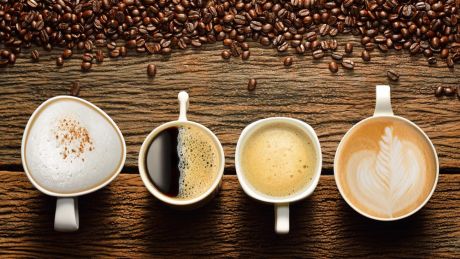Here’s Why Everyone Saying Four Cups Of Coffee A Day Is Fine Is Wrong
Probably. You need to look at your overall caffeine intake, which should be kept under 400mg a day

Sign up for workout ideas, training advice, reviews of the latest gear and more.
You are now subscribed
Your newsletter sign-up was successful
Coffee is delicious, energising and almost certainly does you more good than harm in reasonable doses. However, headlines proclaiming you can drink four cups a day with no risk based on new research from the International Life Sciences Institute are misleading. You’re busy, so let’s clear this up nice and quick.
The study was about caffeine, not coffee. It said 400mg of caffeine a day is fine.
The amount of caffeine in a cup of coffee varies wildly. Drink four Grande Americanos at Starbucks and you are way over 400mg.
You probably also ingest caffeine from other foods and drinks.
So, regularly drinking four cups of coffee is totally fine if those cups of coffee add up to 400mg, and you don’t consume any other caffeine.
Now, the specifics. The research, published in Food And Chemical Toxicology, reviewed 740 studies that analysed the health impacts of caffeine consumption. The results of the review supported existing guidelines from organisations like the European Food Safety Authority and the Food Standards Agency that say consuming up to 400mg of caffeine a day is not linked to any adverse health outcomes.
Many news outlets translated the 400mg of caffeine figure from the research into four cups of coffee a day, but the amount of caffeine in coffee varies wildly depending on type and mug size.
The FSA advises that a mug of instant coffee contains 100mg of caffeine and brewed or filtered coffee 140mg. This assumes you stick to a normal-sized mug, so if you’re filling up one of those massive Sports Direct goblets that seem to appear in every office cupboard, you’re probably smashing through that number in one go.
If you opt for a shop-bought coffee you’re also going to get a lot more caffeine than you might expect. Starbucks’ Grande Americano – not even the biggest size – contains 470ml of coffee and a massive 225mg of caffeine, for example.
Sign up for workout ideas, training advice, reviews of the latest gear and more.
Also bear in mind that coffee is not the only thing you’re going to eat or drink that contains caffeine. A cup of black tea contains around 75mg of caffeine, a can of energy drink 80mg, and a can of Coke 40mg.
Then there’s the sneakily high levels of caffeine in chocolate to consider – up to 50mg in a 50g bar of dark chocolate or 25mg in a bar of milk chocolate. Protein bars and other supplements can also contain high levels of caffeine, so it’s worth checking the labels before pairing them with a coffee.
The health risks of frequently going over the recommended daily limit range from an increased risk of cardiovascular problems to mental health issues like depression and anxiety. This isn’t going to happen after one stressful day where you chug down eight cups of strong black stuff from the office percolator, but it’s something to bear in mind if you’re exceeding the 400mg recommended daily limit more often than not.

Nick Harris-Fry is a journalist who has been covering health and fitness since 2015. Nick is an avid runner, covering 70-110km a week, which gives him ample opportunity to test a wide range of running shoes and running gear. He is also the chief tester for fitness trackers and running watches, treadmills and exercise bikes, and workout headphones.
